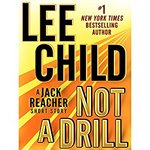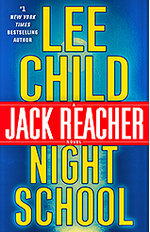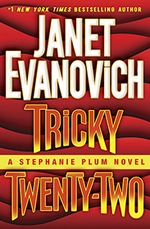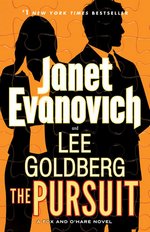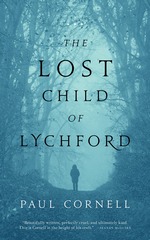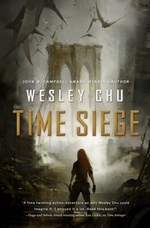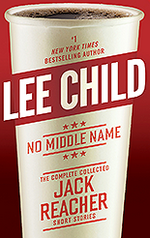 No Middle Name: The Complete Collected Jack Reacher Short Stories
No Middle Name: The Complete Collected Jack Reacher Short Stories
by Lee Child
Series: Jack ReacherHardcover, 418 pg.
Random House Publishing Group, 2017
Read: May 31, 2017

Over the years, Lee Child has published a number of short stories/novellas featuring Jack Reacher, and finally they’re all published in one handy collection. Some are available in non-ebook format for the first time, too. Also, we have a brand-new novella to kick things off. For many, this is the first they’ve been able to access them — I haven’t read any of them before, but I’ve listened to most of them in audiobook format.
Now, as I’ve said before, short stories aren’t normally my bag — and that’s very true for the Reacher stories. He just works better in novel-length stories, generally speaking anyway. For those stories I’ve listened to already, my opinion of them didn’t really change as I read them — the couple I liked, I still liked. The others . . . well, I remained unimpressed — it’s good to know that it wasn’t the format or Dick Hill (the narrator) — it really was the length or story.
But enough about that — there are three stories that I want to talk about — the first two are short stories that I really enjoyed. They’re just the right length, which is nice, you don’t feel short-changed. They also don’t feature Reacher that prominently. The first is “James Penney’s New Identity” (which apparently was published in a shorter form originally), it’s a story about a man who’s the victim of changing economic times who has had enough — at a pivotal point for him, he meets Jack Reacher (still in the Army). By his words and actions, Reacher changes the rest of James Penny’s life — and Reacher doesn’t have to fight anyone to do it. This story leaves the reader with more questions than answers — but in a good way.
“Everyone Talks” is written from the POV of a new police detective who has the good(?) fortune to run into Reacher in a professional capacity on her first day. I really liked this one — Reacher was pretty ingenious here dealing with the problem he sticks his nose into in a way that shows more brains than brawn. I think I actually laughed out loud as soon as I realized what he was up to. Pretty clever.
Oddly. there are two Christmas-y stories — I don’t know why I find that so odd, but Reacher doesn’t feel like a Christmas character. I liked, but wasn’t wowed by, both of them.
Obviously, the big thing here is the new novella, Too Much Time. Reacher’s wandering through a town and gets peripherally involved in stopping a petty crime. He allows himself to be cajoled by the police into helping them out for a few minutes afterwards. Things go wrong just a few minutes later. This is as good a novella-length story that I can imagine for Reacher — there’s a pretty good fight, Reacher solving a puzzle while helping the authorities — and keeping himself out of trouble. A little bit cerebral, a little bit thug. The perfect Reacher recipe. If Andy Martin’s book has taught me anything, it’s that there’s some significance to the law enforcement officials having names that start with A, B, C and D. If I was more clever, I’d know why. Still, I liked it a lot.
A nice, solid collection — with some strong stand-outs. Reacher fans need to grab it.
—–








